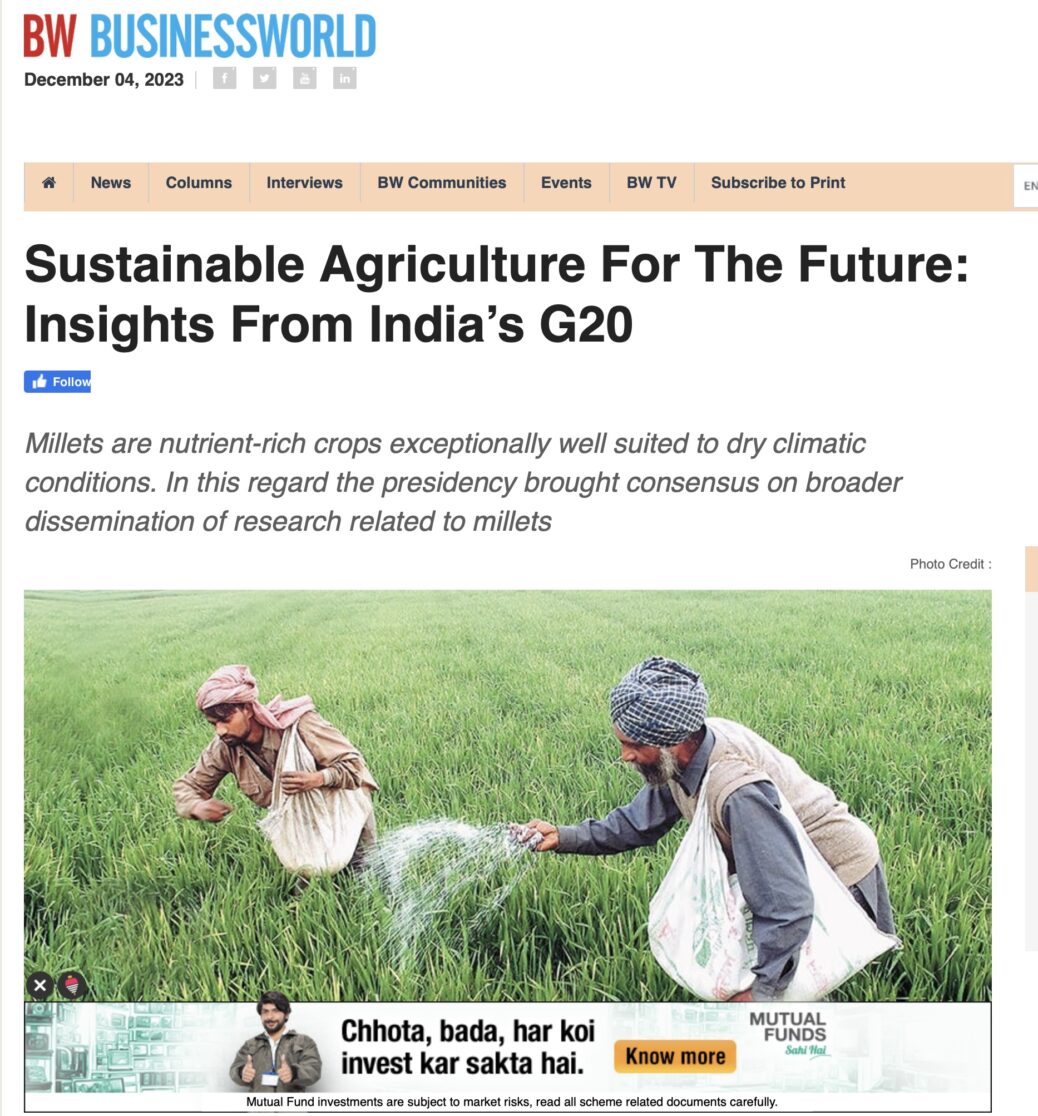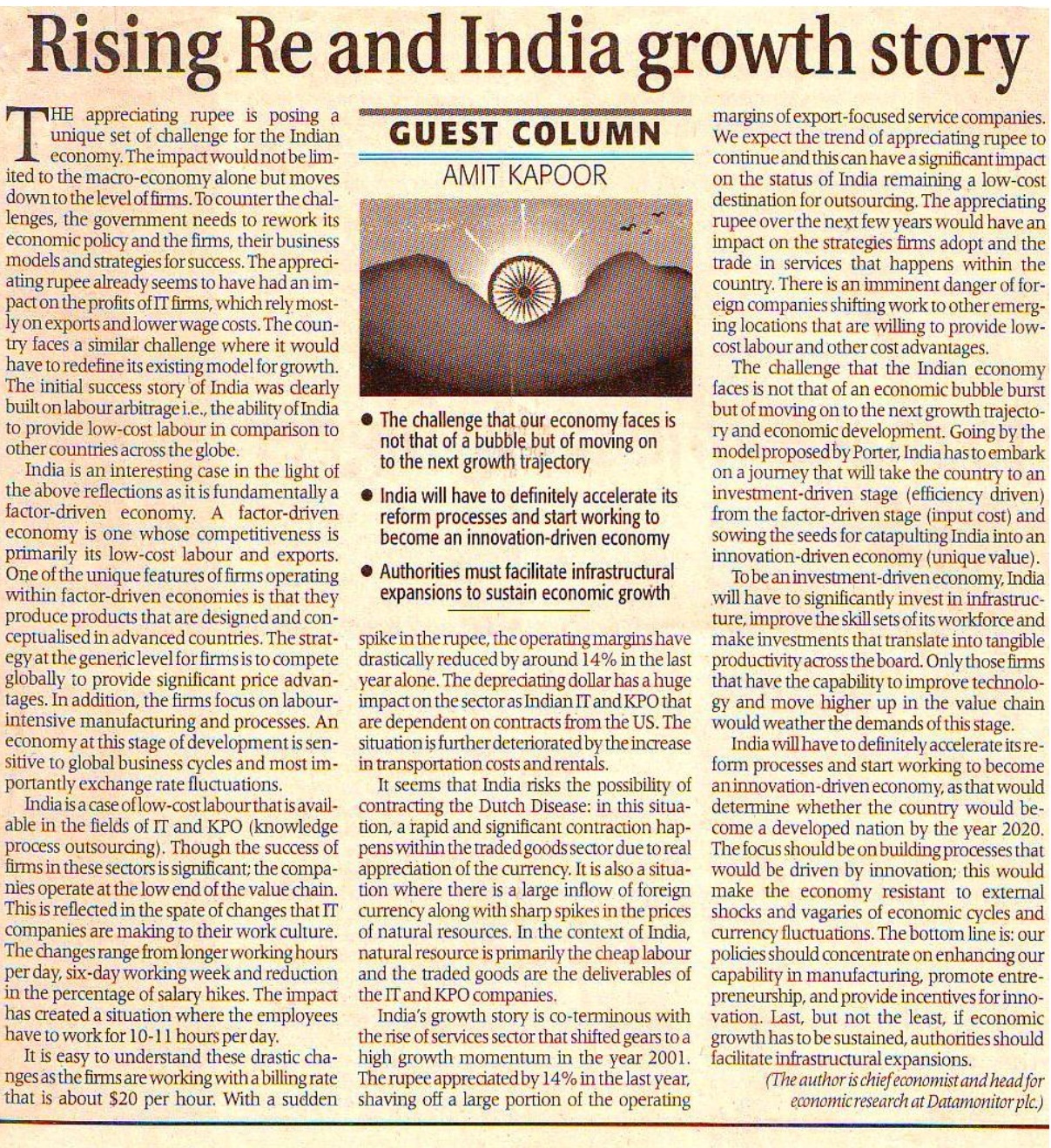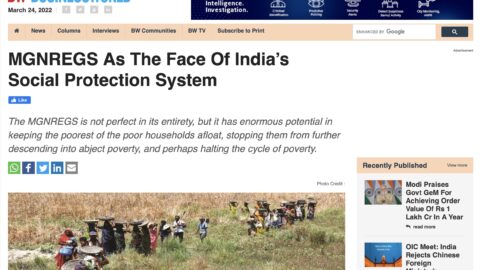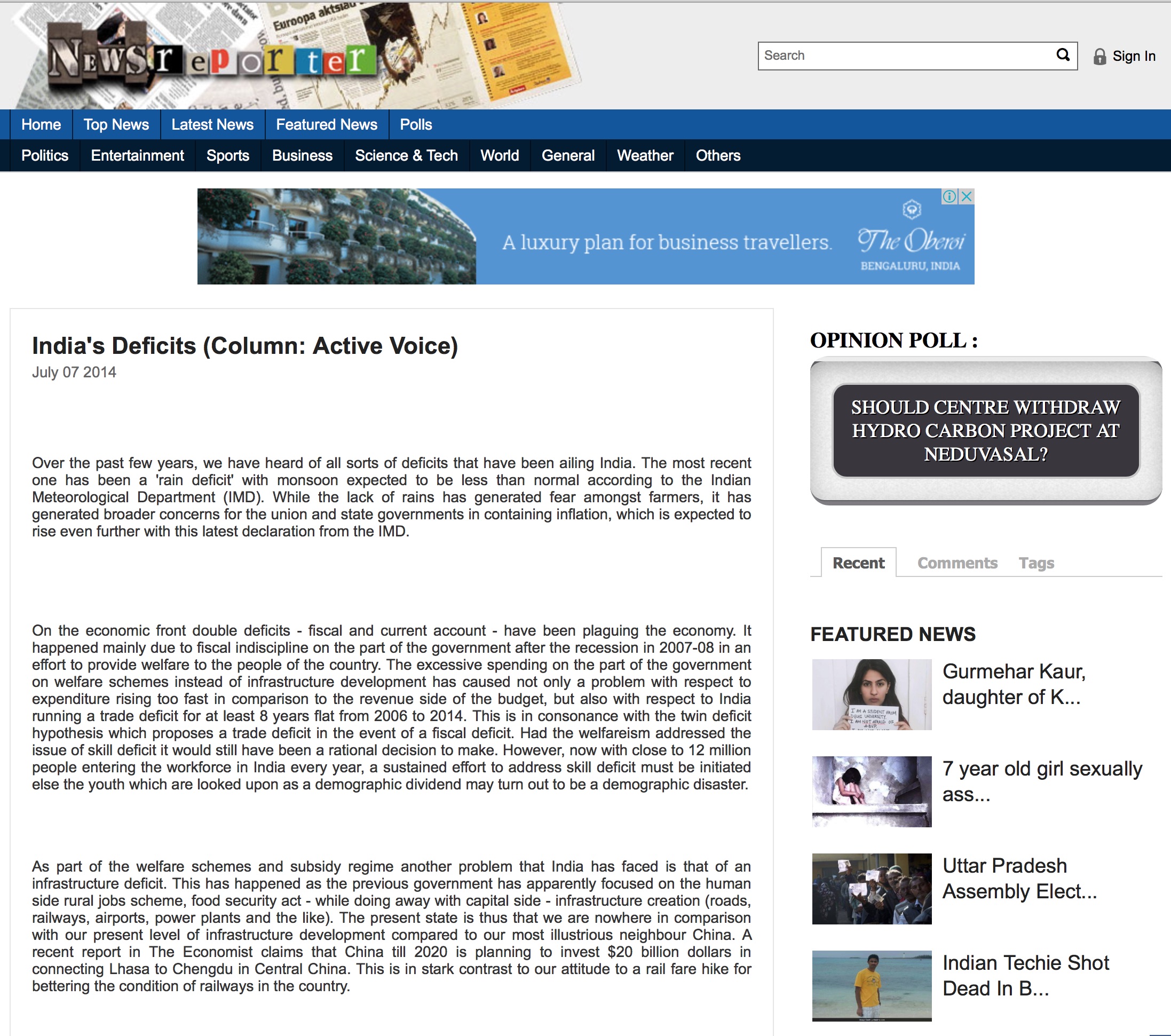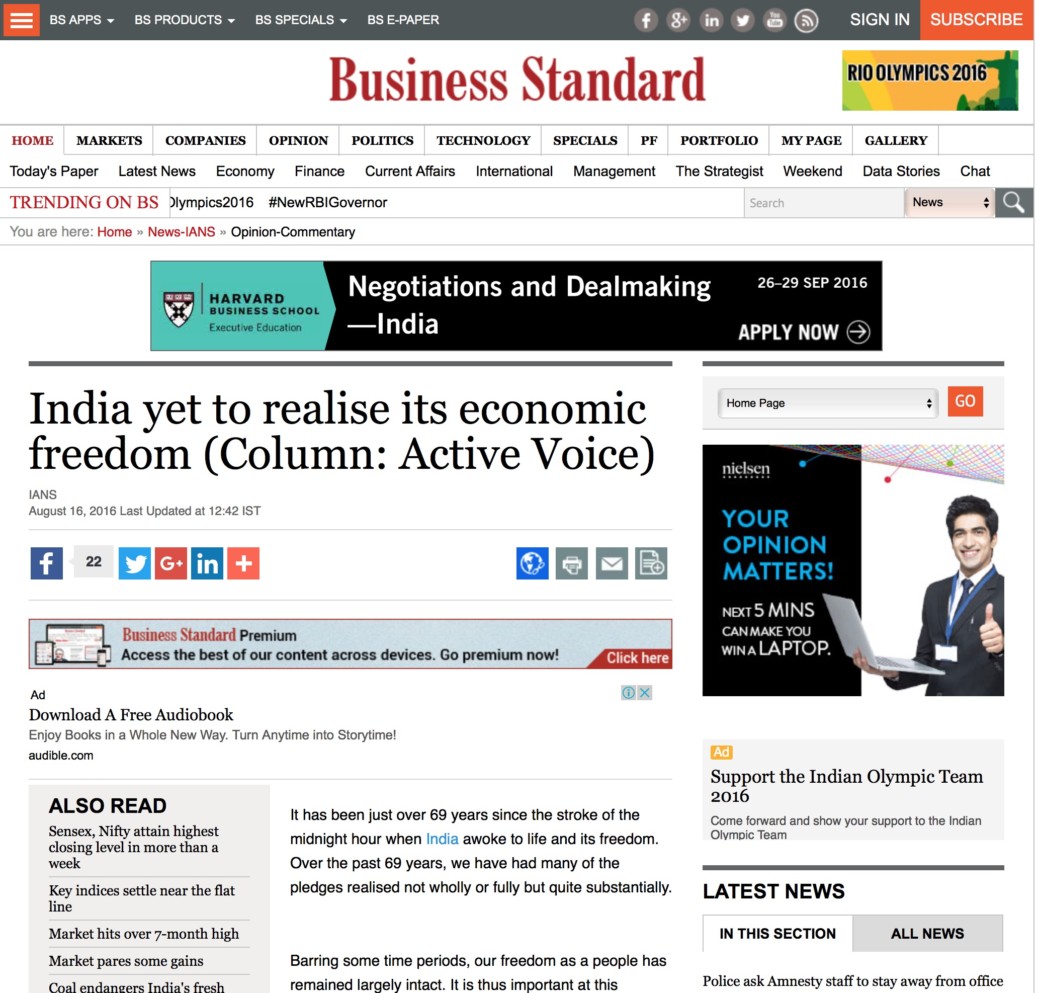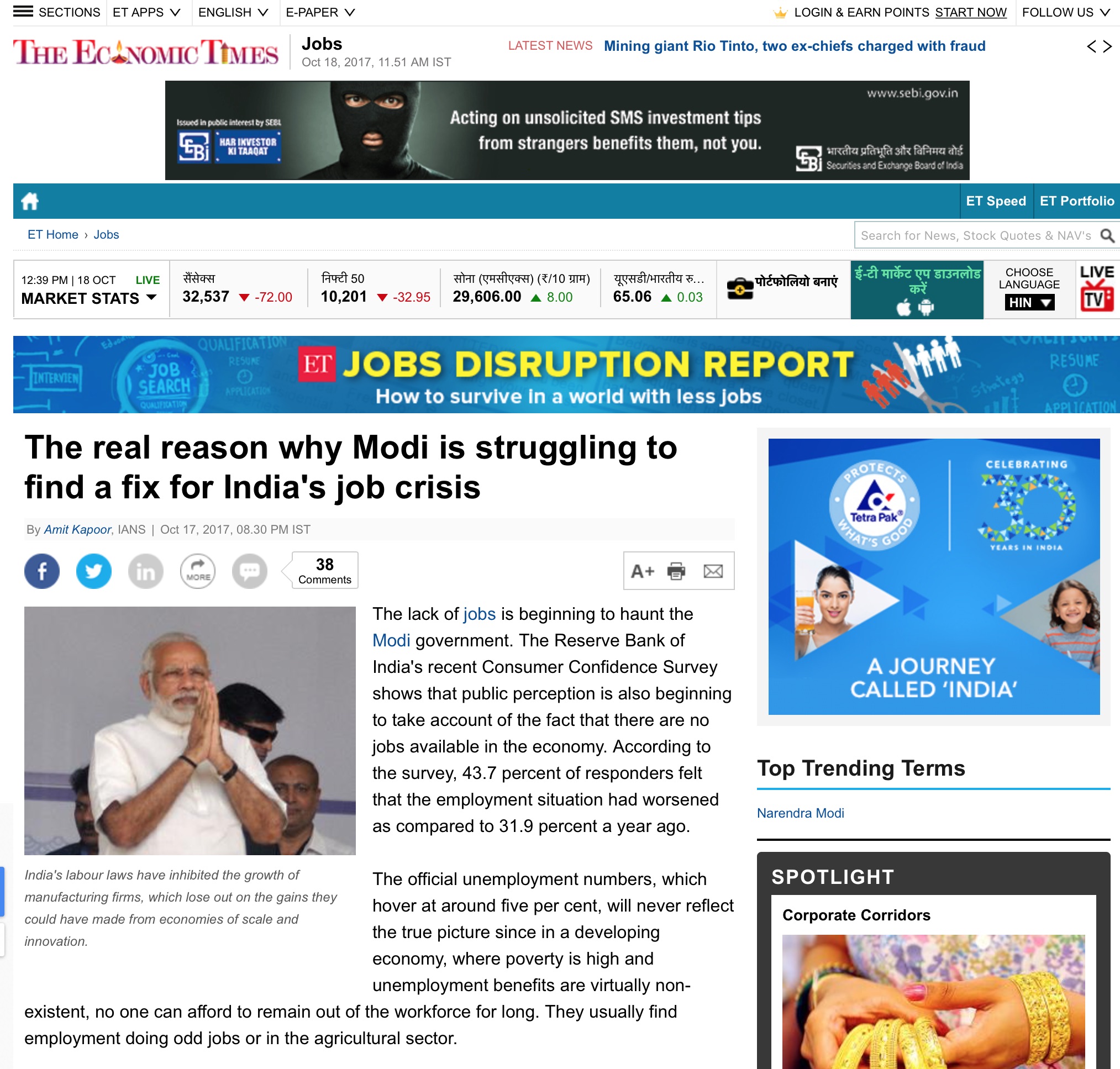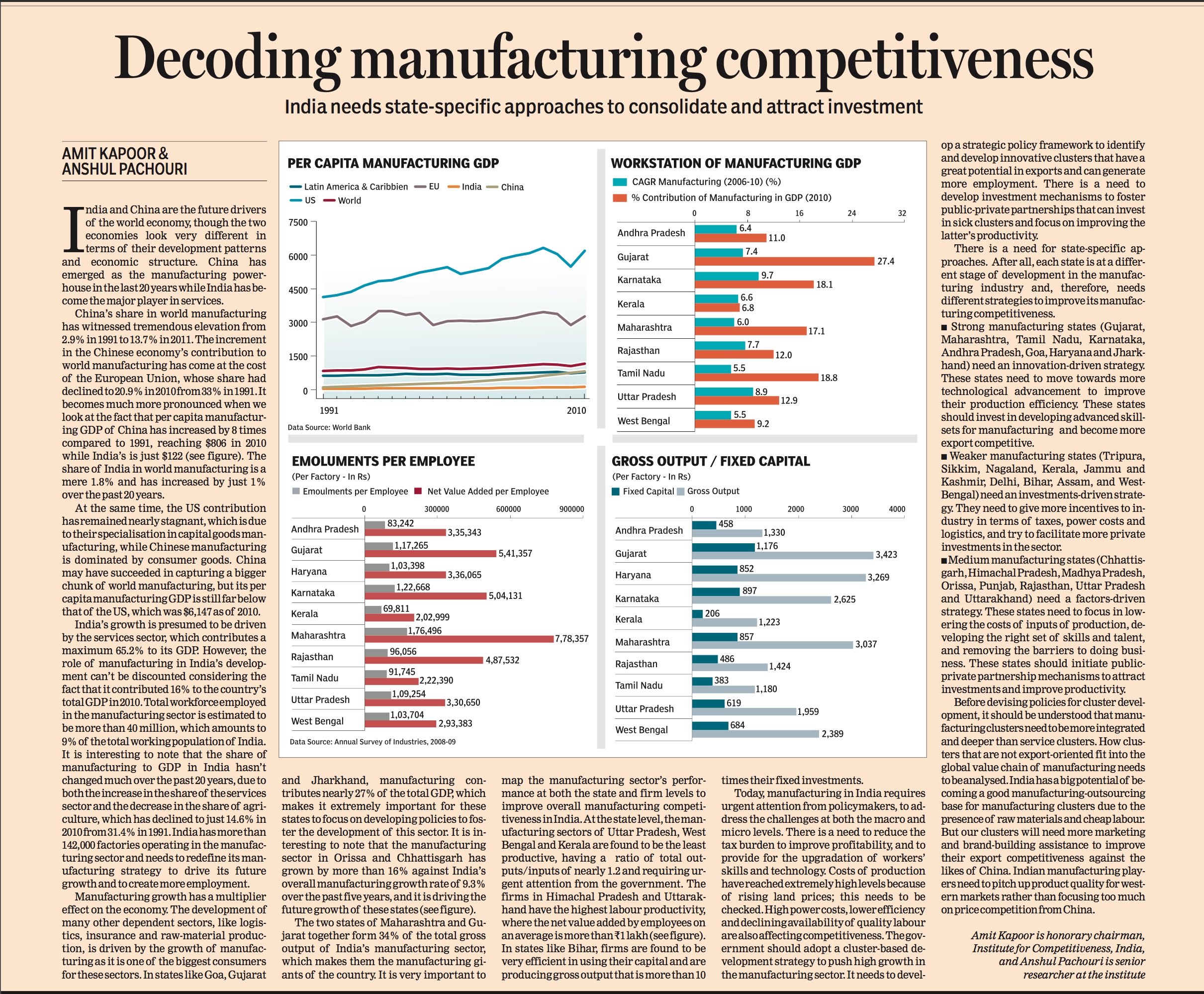Amit Kapoor and Hari Menon
India’s concerted efforts towards achieving zero hunger and prioritising food security through social protection system have only enhanced since the COVID-19 pandemic. Working towards ensuring that all people, at all times, have access to basic food that is nutritious and essential for an active and healthy life, India, through its food security systems, has made efforts to address the multidimensional aspects of hunger. This is particularly evident through schemes like public distribution systems, mid-day meal schemes, maternity entitlements, active efforts towards mainstreaming fortified foods, and national nutrition policy that target the issue of hunger and malnutrition, along with all other deprivations that intensify the problem at hand. India had activity engaged for 2023 to be declared as the International Year of Millets (IYOM) in the pursuit of promoting millets in diets as a source of nutrition. Even before India took over the G20 Presidency, the country volunteered to take forward the dialogue and processes in connection with the UN Food Systems Summit (2021), dealing with advancing equitable livelihoods for the UN Food System Summit 2021.
During the G20 presidency, India, in its agriculture working group, pursued priorities aligned with its goal of achieving zero hunger. The four priorities were – (i) food security and nutrition, (ii) sustainable agriculture with climate-smart approach, (iii) inclusive agri value chains and food systems and (iv) digitalisation for agriculture transformation. The four priorities were seen as pillars that together foster means to achieving food security through climate-sustainable and resilient approaches, especially within the agri-sector. The G20 New Delhi Leaders’ Declarationcalled for Eliminating Hunger as a top priority; the leaders committed to accelerating innovations and investments in increasing agricultural productivity along with reducing food loss and waste in order to build more sustainable and climate-resilient agriculture and food systems. Further, strengthening research and development on climate-sustainable and nutritiously diverse grains like millets was acknowledged as critical, given the adverse impacts of climate change .. Apart from this, the G20 Deccan High-Level Principles on Food Security and Nutrition and the Millets and other Ancient Grains International Research Initiative (MAHARISHI) were also adopted as part of the 118 documents that were adopted and annexed with the Declaration.
As per FAO, agri-sector remains a high-emission sector, with agri-food systems accounting for nearly 31% of emissions in 2020. Agriculture contributes to climate change and must be an integral part of the global response to global warming. Therefore, adaptation and adaptation-led mitigation practices in this sector are necessary for reducing the adverse effects of climate change and ensuring food security. As pushed by India during its agriculture negotiations, climate-smart approaches address trade-offs across economic and environmental goals, thereby minimising emissions per unit of output. Climate-smart agriculture aims to enhance food security and incomes and foster resilience sustainably. Sustainable agriculture also includes making agri-value chains sustainable and resilient. These would include developing insurance programs and embedding agricultural risk management tools, establishing early warning and market information systems, developing agricultural programs and promoting crop diversification, promoting and incentivising agricultural productions for the local market and building food systems at local levels. Not only does this investment serve as a linchpin for stimulating economic growth, but it also stands as a potent weapon in the fight against global poverty.
Pursuing sustainable agriculture and food systems and mainstreaming it through multilateral forums like G20 has helped India achieve what stands to benefit consumers and producers. In the light of the need to raise productivity while moving towards food systems that are sustainable environmentally, economically and socially and that support quality and diverse diets, the G20 has achieved a consensus on increasing responsible investment in food systems, enhancing social safety nets and incentives for farmers to shift to sustainable agriculture practices and increasing productivity sustainably to ensure unimpeded food supply. In particular, the presidency has motivated a dialogue on climate-smart approaches for sustainable agriculture. Developing crop varieties that are more resistant to pests, diseases, drought, water logging, and salinity is also connected to agriculture conservation. The agriculture sector, comprising various plant and animal species, is prone to imbalances in the over-arching one-earth one-health. It has also been highlighted that the existing climate-smart practices and emerging agroecological and environment-friendly approaches could be scaled up with significant investments in building the knowledge base, developing technology and implementing non–degrading and resource–conserving production systems.
Additionally, it is equally important to ensure that demand-side factors that emanate from consumers are viable long-term and support green agriculture. Changing lifestyles lead to demands for customised diets, many of which adversely impact agri-systems. Keeping this in mind, emphasis should be on two aspects – introducing diverse sources of nutrition through local and traditional crops that often remain underutilised, like millets, and ensuring that the crops don’t lay undue disadvantage on food systems. Millets are nutrient-rich crops exceptionally well suited to dry climatic conditions. In this regard, the presidency brought consensus on broader dissemination of research related to millets. These efforts have successfully translated India’s domestic importance to the agri sector into substantive gains at a multilateral level through its call for urgent and imminent action for sustainable agriculture.
(Kapoor is chair, Institute for Competitiveness, India and Lecturer, USATMC, Stanford University; Tweets @kautiliya. Hari Menon is director, India Country Office, BMGF).
The article was published with Business World on December 2, 2023.

